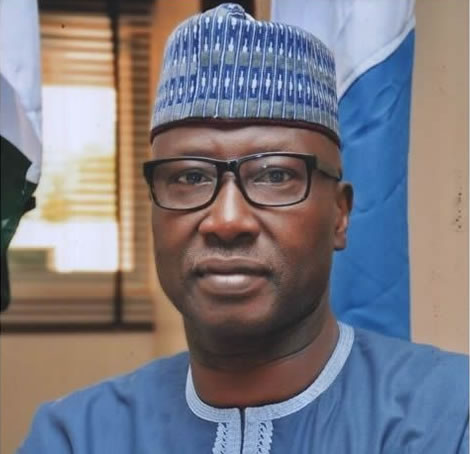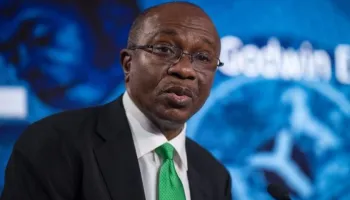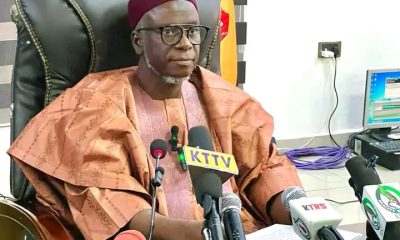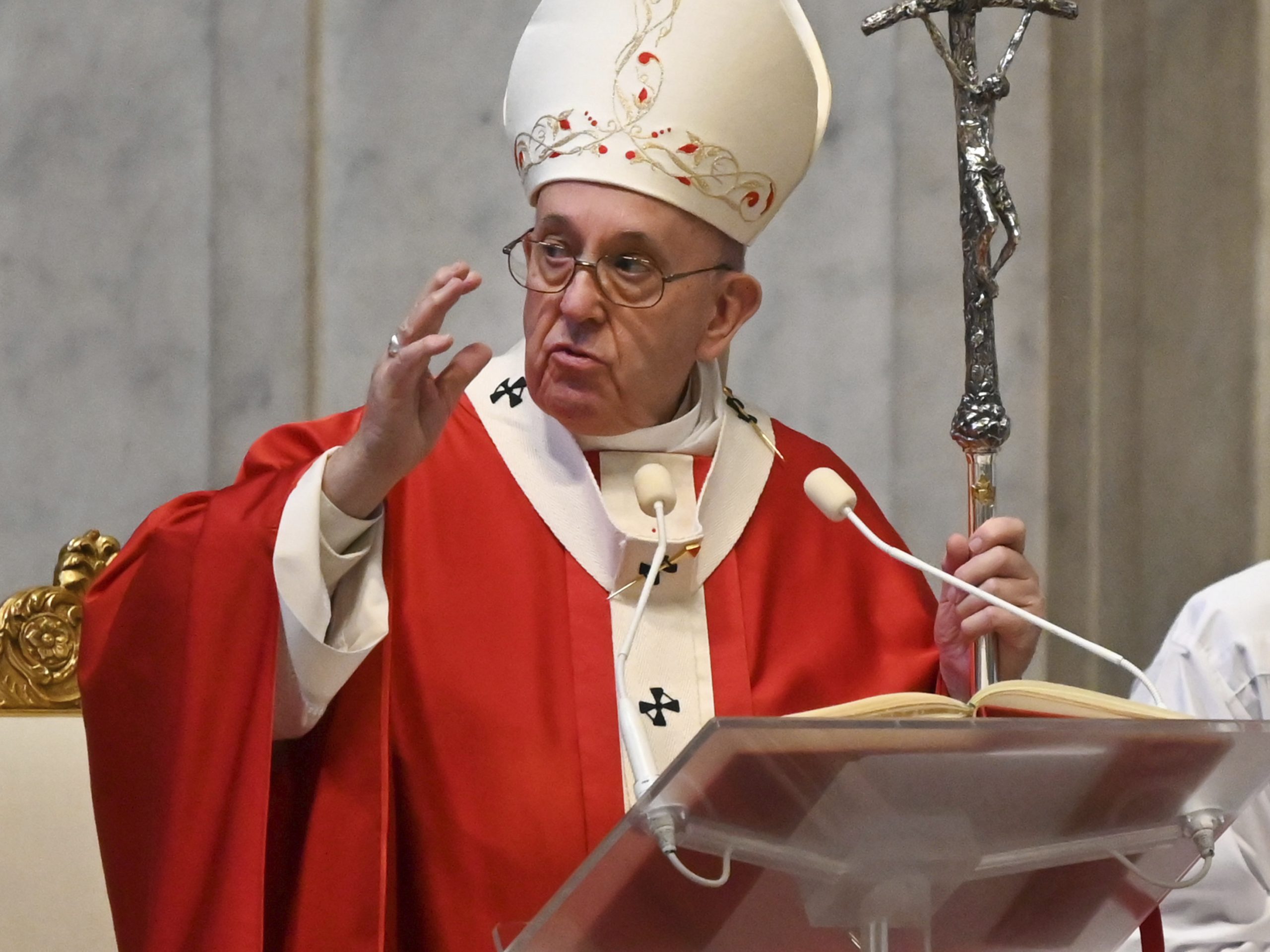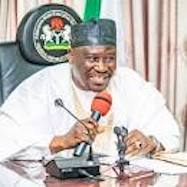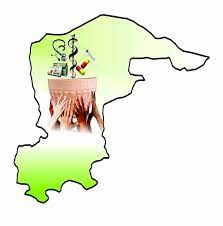Economy
FG, Siemens Sign 25,000MW Electricity Deal

- No middlemen will be involved, Says Buhari
By Mathew Dadiya, Abuja
In its continuous effort to address the epileptic power supply in the country, the Federal Government of Nigeria and German -based electricity giant – Siemens on Monday, signed an agreement to boost power supply from current 5000MW to 25,000MW by 2025.
President Muhammadu Buhari while speaking shortly after a signature ceremony for the deal said that the goal of his administration was simply to deliver electricity to Nigerian businesses and homes.
Buhari said that his administration’s priority was to stabilise the power generation and gas supply sector through the Payment Assurance Facility, which led to a peak power supply of 5,222 MW.
Nonetheless, the President noted that the constraints remained at the transmission and distribution systems.He said: “This is why I directed my team to ask Siemens and our Nigerian stakeholders to first focus on fixing the transmission and distribution infrastructure – especially around economic centres where jobs are created.
“Whilst it was evident that more needed to be done to upgrade the sub-transmission and distribution system, our Government was initially reluctant to intervene as the distribution sector is already privatised.
“I am therefore very pleased with the positive feedback from private sector owners of the distribution companies, who have all endorsed Government’s intervention to engage Siemens on this end-to-end plan to modernise the electricity grid.”
The president said that his challenge to Siemens, Nigeria’s partner investors in the Distribution Companies, the Transmission Company of Nigeria and the Electricity Regulator is to work hard to achieve 7,000 megawatts of reliable power supply by 2021 and 11,000 megawatts by 2023 – in phases 1 and 2 respectively.
“After these transmission and distribution system bottlenecks have been fixed, we will seek – in the third and final phase – to drive generation capacity and overall grid capacity to 25,000 megawatts.
“With our strong commitment to the development of Mambilla Hydroelectric and the various solar projects under development across the country, the long-term power generation capacity will ensure adequate energy mix and sustainability in the appropriate balance between urban and rural electrification.
“Our intention is to ensure that our cooperation is structured under a Government-to-Government framework,” he added.
President Buhari warned that no middlemen will be involved, so as to achieve value for money for Nigerians.
He insisted that all products be manufactured to high quality German and European standards and competitively priced.
This project, however, President Buhari acknowledged would not be the solution to all nation’s problems in the power sector.
But he expressed confidence that it has the potential to address a significant amount of the challenges we have faced for decades.
Meanwhile the Global Chief Executive Officer of Siemens, Joe Kaeser, who spoke to State House Correspondents after the meeting that the road map will enable Nigeria delivers the country’s capacity of power in the first phase of 7,000, second phase up to 11,000 and third phase 25,000 megawatts.
Kaeser said: “That will significantly enhance the country’s power supply and gets the country to the next industrial phase. We believe we will all very much benefit together, the people of Nigeria and of course Siemen as a company.
“I’m very honured that we were able to sign this road map today in the presence of President and our partners. I will personally make sure that this will be the big success of Nigeria, Siemen and our partners in the country.”
On the cost of the project and how long it will last, Kaeser said: “we have really talked about solutions and how it can bring power to the people literally, from generation to transmission and effective distribution. Yes, we have been talking money at this time because this about a long term partnership and is a road map which we are going to work all the way till 2025.
“The first phase is suppose to be done by 2021, second phase till end 2022 and the final phase by 2025.”
Also, the Director General of Bureau for Public Enterprises (BPE), Alex Okoh, while fielding questions from State House Correspondents, described the partnership as credible.
He said what has been done so far is the technical evaluation from both the transmission and distribution to know what the gaps are, to essentially understand what the gaps are in terms of the technical infrastructure to improve the transmission and distribution capacity.
Okoh said that the next phase is to do the detailed commercials and see costing of what the Siemen intervention will entail before they will agree on the financial frameworks to domiciled the financial commitment within the books of the DISCOS.
“If you look at the amount of losses that is being experienced in the entire power sector, there are huge. We are talking about double digits losses between 30 percent and in some DISCOS almost 70 percent ATC and C losses. So that is a strong signal that the way the market is currently structured is not sustainable and if we don’t improve the critical infrastructure in terms of the winning capacity of TCN and also the distribution capacity of the DISCOS, then this kind of situation will persist for a long time.
“That is why we welcome this intervention and we believe that within the timelines that have been directed by Mr. President, we will be able to significantly improve power supply in the country.”
Economy
Organise Informal Sector, Tax Prosperity Not Poverty, Adedeji Tasks Officials

The Chairman, Joint Tax Board (JTB), Dr Zacch Adedeji, has urged officials of the board to organise traders and artisans into a formal body before capturing them in the tax net.
Adedeji said that this was in line with the agenda of President Bola Tinubu not to tax poverty but prosperity.
The chairman stated this at the 157th Joint Tax Board meeting held in Ibadan, on Monday.
The theme of the meeting “Taxation of the Informal Sector: Potentials and Challenges”.
Speaking on the theme of the event, Adedeji stressed the need to evolve a system that would make the informal sector formal before it could be taxed.
Adedeji, who also doubles as the Chairman, Federal Inland Revenue Service, (FIRS), said “What I would not expect from the JTB meeting is to define a system that would tax the informal sector.
“The only thing is to formalize the informal sector, not to design a system on how to collect tax from market men and women.
“As revenue administrator, our goal is to organise the informal sector so that it can fit into existing tax law.”
Citing a report of the National Bureau of Statistics (NBS) in the first quarter of 2023, the chairman said that the nation’s unemployment index was attributable to recognised informal work.
Adedeji stated that workers in that sector accounted for 92.6 per cent of the employed population in the country as at Q1 2023.
“JTB IS transiting to the Joint Revenue Board with expanded scope and functions.
“We are hopeful that by the time we hold the next meeting of the Board, the Joint Revenue Board (Establishment) Bill would have been signed into Law by the President.
“The meetings of the board provide the platform for members to engage and brainstorm on contemporary and emerging issues on tax, and taxation,” he said.
In his address, Gov. Seyi Makinde of Oyo State, said the theme of the meeting was apt and timely, stressing that it coincides with the agenda of the state to improve on its internally generated revenue.
According to him, the meeting should find the best way forward in addressing the issue of the informal sector and balance the identified challenges.
“Nigeria is rich in natural resources, but it is a poor country because economic prosperity does not base on natural resources,”
Makinde also said that knowledge, skill and intensive production were required for economic prosperity, not just the availability of natural resources.
He stressed the need to move from expecting Federal Allocations to generating income internally.
“We are actively ensuring that people are productive and moving the revenue base forward,” Makinde said.
The governor said that tax drive should be done by simplifying tax processes, incentives for compliance like access to empowerment schemes and loans.
He urged JTB to deepen partnership and innovation in using data on tax to track and administer it.
Earlier, the Executive Chairman, Oyo State Board of Internal Revenue, Mr Olufemi Awakan, said the meeting was to address tax-related matters, evolve a workable, effective and
efficient tax system across the states and at the Federal level.
He urged participants to find amicable solutions to challenges of tax jurisdiction, among others.
Tax administrators from all the 36 states of the federation, who are members of JTB, were in attendance. (NAN)
Economy
Customs Zone D Seizes Contraband Worth N110m

The Nigeria Customs Service (NCS), Federal Operation Unit (FOU), Zone D, has seized smuggled goods worth over N110 million between April 20 till date.
The Comptroller of Customs, Abubakar Umar, said this at a news conference on Tuesday in Bauchi.
He listed the seized items to include 11,200 litres of petrol; 192 bales of second hand clothing, 140 cartons of pasta, 125 pairs of jungle boots, 47 bags of foreign parboiled rice and 9.
40 kilogramme of pangolin scales.Umar said the items were seized through increased patrols, intelligence-led operations, and strengthened inter-agency collaboration.
The comptroller said the pangolin scales would be handed over to the National Environmental Standards and Regulations Enforcement Agency (NESREA) for appropriate action, while the seized petrol would be auctioned, and the proceeds remitted to the federation account.
He attributed the decrease in smuggling activities of wildlife, narcotics, and fuel to the dedication and professionalism displayed by the personnel in line with Sections 226 and 245 of the NCS Act 2023.
The comptroller enjoined traders to remain law abiding, adding the service would scale up sensitisation activities to combat smuggling.
“We remain resolute in securing the borders and contributing to Nigeria’s economic development,” he said.
The FOU Zone D comprises Adamawa; Taraba, Bauchi, Gombe, Borno, Yobe, Plateau, Benue and Nasarawa. (NAN)
Economy
Trade Tensions: Global Economy Stands at Fragile Turning Point -UN
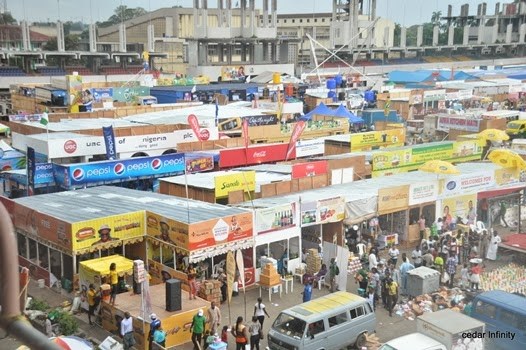
The UN Department of Economic and Social Affairs (UN DESA) has said that the global economy stands at a fragile turning point amid escalating trade tensions and growing policy uncertainties.UN DESA, in a report published on Thursday, stated that tariff-driven price pressures were adding to inflation risks, leaving trade-dependent economies particularly vulnerable.
It stated that higher tariffs and shifting trade policies were threatening to disrupt global supply chains, raise production costs, and delay key investment decisions – all of this weakening the prospects for global growth. The economic slowdown is widespread, affecting both developed and developing economies around the world, according to the report.For instance, in the United States, growth is projected to slow “significantly”, as higher tariffs and policy uncertainty are expected to weigh on private investment and consumer spending.Several major developing economies, including Brazil and Mexico, are also experiencing downward revisions in their growth forecasts.China’s economy is expected to grow by 4.6 per cent this year, down from 5.0 per cent in 2024. This slowdown reflects a weakening in consumer confidence, disruptions in export-driven manufacturing, and ongoing challenges in the Chinese property sector.By early 2025, inflation had exceeded pre-pandemic averages in two-thirds of countries worldwide, with more than 20 developing economies experiencing double-digit inflation rates.This comes despite global headline inflation easing between 2023 and 2024.Food inflation remained especially high in Africa, and in South and Western Asia, averaging above six per cent. This continues to hit low-income households hardest.Rising trade barriers and climate-related shocks are further driving up inflation, highlighting the urgent need for coordinated policies to stabilise prices and protect the most vulnerable populations.“The tariff shock risks hitting vulnerable developing countries hard,” Li Junhua, UN Under-Secretary-General for Economic and Social Affairs, said in a statement.As central banks try to balance the need to control inflation with efforts to support weakening economies, many governments – particularly in developing countries – have limited fiscal space. This makes it more difficult for them to respond effectively to the economic slowdown.For many developing countries, this challenging economic outlook threatens efforts to create jobs, reduce poverty, and tackle inequality, the report underlines. (NAN)




